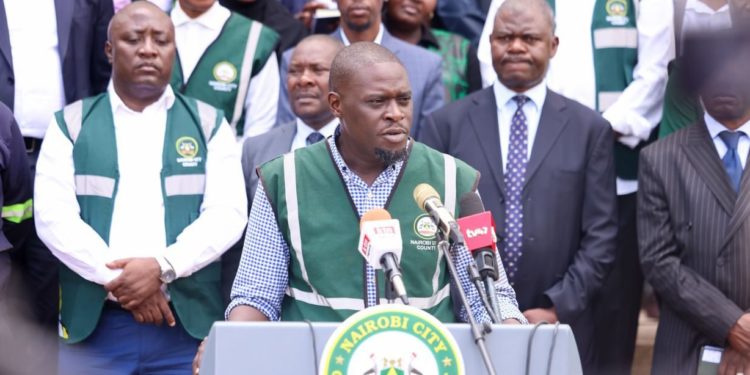City Hall is preparing to commence the construction of a KES 290 million official residence for the Nairobi Governor in Kilimani, with plans to compensate twelve families currently living on the designated land. Acting County Secretary Geoffrey Akumali confirmed that each family will receive KES 50,000 to facilitate relocation, a necessary step to clear the site for construction.
Speaking to the County Assembly Justice and Legal Affairs Committee, Akumali emphasized that establishing a governor’s residence has been a long-standing legal requirement, introduced during Kenya’s devolution period by the Transition Authority. “We are actually behind schedule because this is something that should have been done long ago,” Akumali stated, stressing the need to move forward with the project.
Initially, the county had allocated KES 500 million for the governor’s residence; however, the budget was revised to KES 290 million after Governor Johnson Sakaja opted against the offer, citing other funding priorities. As of now, KES 60 million has already been disbursed for the project, with construction expected to begin by the end of this month and completion slated for April 2025.
Committee Chairman Jared Akama pointed out that building an official residence for the governor is essential to ensure compliance with legal obligations and avoid audit issues. “This is a requirement of the law, and indeed, Nairobi is behind schedule. For now, it is important to clear the audit queries,” Akama said.
The decision also takes into account financial concerns. In 2019, the Treasury reported significant monthly rental expenses, with KES 5 million allocated for governors, KES 4.51 million for deputy governors, and KES 3.75 million for speakers. These additional costs, along with transportation and entertainment allowances, add to the taxpayer burden.
Governor Sakaja has previously expressed reservations about the expenditure, highlighting his focus on directing funds to other community initiatives. In 2022, Sakaja suggested the money be allocated to small and medium enterprise (SME) development within Nairobi, stating, “I already have a place where I live; why do I need KES 500 million for another residence? Let’s work for our people.” Sakaja’s vision included using the funds to support local markets and job creation opportunities for Nairobi’s youth.










